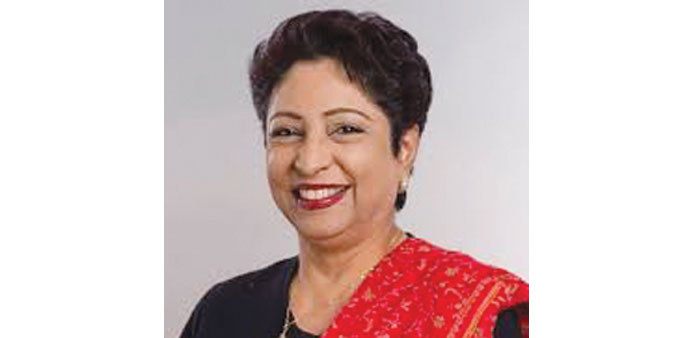IANS/Islamabad
Pakistan this week pressed on with its diplomatic offensive at the United Nations headquarters in New York in an attempt to explain its stand on the cancelled meeting between National Security Advisers (NSAs) of India and Pakistan and to pressure New Delhi on continued ceasefire violations along the Line of Control (LoC) and Working Boundary.
A senior diplomat revealed that immediately after cancellation of the meeting between the two NSAs, Pakistan’s permanent representative at the UN Maleeha Lodhi was instructed to contact the UN leadership to discuss the rejection of dialogue by India.
The NSAs were scheduled to meet last Monday in Delhi, but the first talks between the two countries on terrorism concerns at this level (higher than previous dialogues on the issue) had to be cancelled because of Indian government’s objection to the agenda proposed by Islamabad and an invitation to the Kashmir’s Hurriyat leadership to a reception at Pakistan’s High Commission in Delhi in honour of Adviser on Foreign Affairs and National Security Sartaj Aziz.
“UN Deputy Secretary General Jan Eliasson was briefed in detail on Monday by Pakistan’s Permanent Representative to the UN, Maleeha Lodhi, about India’s setting of preconditions for the talks between the National Security Advisers of the two countries which led to the cancellation of the meeting,” the source said.
The meeting between Lodhi and DSG Eliasson was followed by a statement by UN Secretary-General Ban Ki-moon on Tuesday regretting the cancellation of the talks.
“The Secretary-General reiterates his call to both countries to continue to address their differences through dialogue,” the UN statement said and hoped that leaders of the two countries would use all opportunities to resume talks at an early date.
About the meeting between Lodi and Eliasson, the source said the deputy UN chief was informed that it was India that had reneged on the agreement reached by the Pakistani and Indian prime ministers in the Russian city of Ufa on discussing all issues outstanding between the two countries.
Eliasson was also informed that Pakistan decided against sending Aziz to Delhi because it found the Indian condition of not inviting Kashmiri leaders for consultations unacceptable. Consultations with Kashmiris, who are an integral part of the Kashmir dispute, are essential to evolving a peaceful solution, the UN official was told.
During the meeting, Ambassador Lodhi also raised the issue of ceasefire violations along the LoC and Working Boundary.
The violations will be discussed when heads of Indian Border Security Force (BSF) and Pakistan Rangers meet in Delhi from September 9 to 13, according to the sources.
Representatives of the BSF and Rangers met on Tuesday to finalise the agenda for the meeting.
Since June Indian troops have violated the ceasefire more than 130 times on the LoC and Working Boundary, as a result of which 16 Pakistanis have been killed and over 60 others injured.
The number of violations recorded during August so far is already higher than any other month this year. This month the LoC has been the focus of the attacks whereas earlier the Working Boundary bore the brunt of the strikes.
The Pakistan Army has on a number of occasions complained to the UN military observers about the ceasefire violations. The last such complaint was lodged earlier this week.
India and Pakistan have fought three wars since becoming independent nations in 1947, two of them over the Himalayan region of Kashmir, which both claim in full but rule in part.
New Delhi has for years accused Pakistan of backing separatist Muslim rebels in India’s part of Kashmir. Pakistan denies the allegations and blames India for fomenting unrest inside Pakistan.

Maleeha Lodhi
